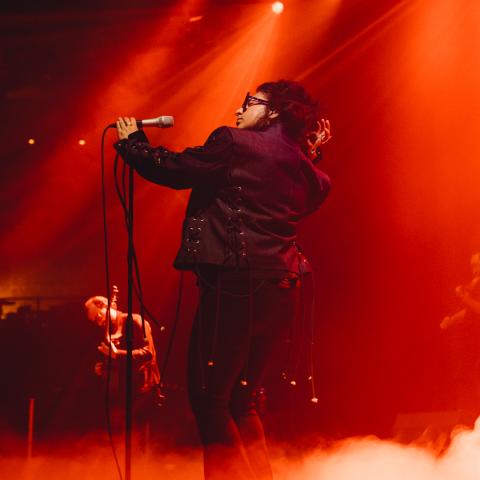Music Education on a Massive Scale
When Leah Waldo ’10 was preparing for graduate work at Harvard, she learned the value of MOOCs (Massive Open Online Courses). The math MOOCs she took far surpassed her experience with commercially available textbooks. Typically, MOOCs consist of filmed lectures, quizzes, peer-to-peer reviews, and an unlimited amount of participants—thus the “massive” part. Many top universities as well as Berklee offer them for free.
In the years since MOOCs set Waldo on the road to her master’s degree, Berklee Online has nearly tripled its MOOC offerings. Waldo is now the curriculum manager for Berklee’s MOOC program, creating opportunities for students around the world.
Berklee currently offers 23 MOOCs, including some courses that have been translated into Spanish and other languages. Subjects include introduction to guitar and music theory as well as higher-level courses such as Creating Synthesizer Sounds for Electronic Music, and Jazz Improvisation (which is taught by Gary Burton). Berklee’s MOOCs have enrolled 1.8 million students to date.
Waldo strives to make these massive courses feel intimate. “We’ve taken many steps to try to make MOOCs with a little m instead of a big M,” Waldo says. These steps include bringing in Berklee alumni as volunteer teaching assistants to monitor the class forums, host Twitter chats, and look for problem areas of the courses. Waldo says that Berklee alumni are incentivized to become teaching assistants with discounts on Berklee Online tuition and the opportunity to share details about their artistic endeavors with the vast pool of students.
“If an alumnus who is helping with a MOOC just cut an album or has social media channels that they want to push, they can get thousands of students looking at their stuff,” Waldo says. “It’s a great opportunity for them, and it makes students feel a connection to someone in the Berklee community.”
MOOCs are offered via services like Coursera and edX. While enrollment is free, a student can pay a small fee (at no more than $49 per course) for a certificate of completion. “The whole idea of MOOCs is to increase access to music education for people who wouldn’t necessarily have access otherwise,” Waldo says. That’s why Berklee is offering courses in multiple languages.
The MOOC experience thus far has been so positive for students that many take the next step and enroll in a Berklee Online 12-week course. There the offerings are wider and the interaction with instructors is more personal. Students who complete a MOOC receive a $300 discount for Berklee Online tuition, giving them the opportunity to begin working toward a bachelor of professional studies degree. “We want them to have a pathway of learning,” Waldo says. “If they choose to go further, they have the option to do so.”
For more information on Berklee’s MOOCs, visit coursera.org/berklee, or edx.org/school/berkleex.




